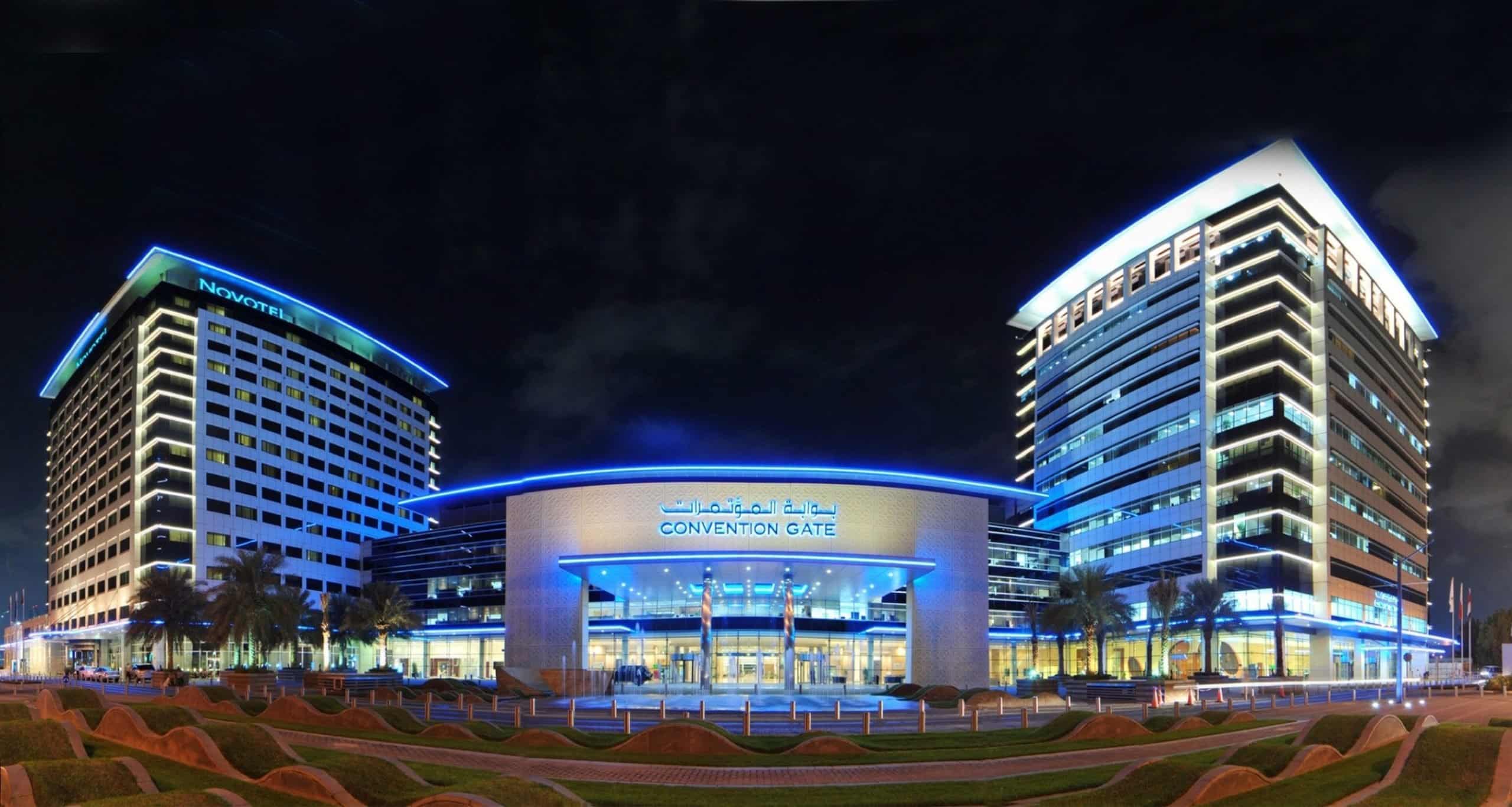Real estate investment trusts (REITs) have traditionally focused on property sectors such as residential, retail, office, and industrial. However, one specialized asset class—convention centers—is gaining renewed attention, especially as business travel and corporate events rebound in the wake of the COVID-19 pandemic.
Convention centers were among the hardest-hit assets during the global health crisis. Their operational model depends on people traveling, gathering, and networking—all activities severely restricted during the pandemic. Events were canceled or moved online, entire annual calendars were wiped clean, and occupancy rates dropped to near zero. As a result, REITs with exposure to convention-related assets saw unprecedented challenges.
Now, the market is shifting. International business travel is resurging, and large-scale in-person events are returning across the globe, including in the Arab world. Cities like Dubai, Riyadh, and Doha are emerging as powerful players in hosting global exhibitions, trade shows, and industry summits. This transformation is reshaping investor perception of convention center REITs, once seen as niche or volatile, into a compelling real estate segment with promising long-term potential.
Understanding Convention Center REITs
A convention center REIT typically owns or operates one or more convention or exhibition halls. These properties are large-scale venues designed to host trade shows, business conferences, consumer expos, and international forums. Some are standalone facilities, while others are part of mixed-use developments connected to hotels, office buildings, shopping districts, or transit hubs.

What distinguishes these REITs from others is their reliance on a cyclical and event-driven revenue model. Unlike traditional office tenants locked into multi-year leases, convention centers operate more like hospitality businesses. They generate income through short-term contracts tied to specific events, with revenues fluctuating based on seasonal demand, city-wide occupancy trends, and macroeconomic conditions.
REITs that focus on or include convention centers may do so through direct ownership, long-term lease agreements, or public-private partnerships with municipalities or tourism boards. Some also manage the venue’s operations, including staffing, security, catering, and tech services. This broadens the income stream beyond base rent but also adds operational complexity and exposure to event-specific risks.
Revenue Generation and Operational Model
Convention center revenues stem from a diverse but often unpredictable mix of sources. These include rental fees charged to event organizers, which may vary based on the size and duration of the event. For large international expos, fees can run into the millions, especially if the event occupies the entire venue for several days.
Additional revenues come from service charges such as event setup, cleaning, and technical support. Convention centers often provide in-house audio-visual services, internet connectivity, climate control, lighting, and security, all billed separately or bundled into premium packages.
Food and beverage concessions are another income stream. Large events may serve thousands of meals per day, either through onsite restaurants, snack bars, or catering services. These concessions are usually operated under contract with a vendor, generating revenue either through profit-sharing or lease agreements.
Parking, branding opportunities (e.g., digital signage, booths, banners), and retail space rental during events further contribute to earnings. In cases where the REIT also owns adjacent hotels, increased occupancy during event dates can significantly boost revenue from lodging and conference-related hospitality services.
However, despite the multiple income sources, the business is highly event-driven. Periods with no scheduled conventions can result in drastically lower revenues. This volatility requires REITs to balance convention assets with more stable property types or to maintain a strong calendar of annual events and partnerships with industry associations.
Pandemic Disruption and Lessons Learned
The pandemic fundamentally altered the trajectory of convention center operations. International and regional lockdowns meant that mass gatherings were banned, flights grounded, and tourism suspended. Events that typically attract tens of thousands of visitors, such as CES in Las Vegas or the Arabian Travel Market in Dubai, were canceled or went virtual.
For REITs holding these types of assets, revenue streams evaporated almost overnight. Some convention centers were temporarily repurposed into field hospitals or testing sites to help local health efforts. While these emergency uses provided some short-term relief, they did not offer a sustainable income substitute.
This period exposed the vulnerabilities of event-based real estate. REITs with high concentrations in convention properties suffered from lower dividends, reduced property valuations, and investor skepticism. Many were forced to renegotiate debt terms, seek government assistance, or explore alternative uses for their facilities.
However, it also led to operational innovations. Safety protocols were upgraded, hybrid conferencing technology was implemented, and many venues invested in health-certified air filtration and touchless infrastructure. These upgrades have now become part of the competitive edge for attracting post-pandemic events.
Business Travel’s Revival and Its Implications
By 2023 and into 2024, the tide began to turn. Corporations, governments, and industry organizations resumed in-person events, driven by the realization that face-to-face interaction remains essential for trust-building, sales, and product launches.
Virtual meetings, while cost-effective and convenient, could not replicate the energy, spontaneity, and engagement of physical gatherings. Exhibitors and attendees alike sought a return to the dynamic experience of real-world conventions, leading to a global resurgence in bookings, travel, and spending on business events.
This rebound is now positively impacting convention center REITs. Revenues are recovering, occupancy levels are rising, and long-term event contracts are being signed once again. REITs with exposure to major cities or event hubs are particularly well-positioned, as organizers favor venues with global connectivity, high safety standards, and integrated hospitality offerings.
The trend is especially visible in cities such as Las Vegas, Paris, Singapore, and Dubai, where convention tourism is a major economic driver. For REIT investors, this shift signals the re-emergence of a once-dormant asset class with high yield potential.
The Middle East as a Growing Convention Destination
Arab countries, particularly in the Gulf region, are actively positioning themselves as global business and exhibition hubs. Governments are investing in state-of-the-art convention facilities, launching aggressive tourism campaigns, and bidding to host international summits, trade fairs, and cultural forums.
Dubai, for example, has long been a leader in MICE (Meetings, Incentives, Conferences, Exhibitions) tourism. Its Dubai World Trade Centre hosts hundreds of international events annually, while Expo 2020 (delayed and held in 2021–2022) was a landmark in post-pandemic event execution.
Saudi Arabia is following suit with its Vision 2030 plan. Riyadh, Jeddah, and Neom are developing expansive convention infrastructure. The government is targeting foreign direct investment and positioning the kingdom as a destination for multinational corporations and global industry bodies.
Doha in Qatar and Muscat in Oman are also expanding their facilities, linking business events to broader cultural and tourism strategies. These efforts are creating an ecosystem where convention center REITs could thrive, supported by government initiatives and rising demand for business travel in the region.
Strategic Considerations for REIT Investors
Investing in convention center assets through REITs requires a careful assessment of both location and operational strategy. The best-performing assets are typically those situated in vibrant, well-connected urban areas with year-round event calendars and strong government or corporate partnerships.
Ownership structure matters. Some REITs directly own the convention center, while others hold long-term leases or management contracts with municipalities. Public-private partnerships are also common, especially in emerging markets where governments retain ownership but delegate operations.
Additionally, REITs that bundle convention centers with hotels, office space, or retail units can create more stable income streams. This mixed-use model helps mitigate the impact of seasonal or unexpected event cancellations, as adjacent assets benefit from spillover demand.
Tenant diversification is less relevant here than in office REITs, but event diversity is crucial. A well-balanced calendar that includes technology expos, healthcare conferences, cultural festivals, and diplomatic summits ensures higher occupancy and broader income resilience.
Capital expenditures are another key factor. Convention centers must continually upgrade their facilities to stay competitive. That includes investments in digital infrastructure, hybrid meeting capabilities, sustainability features, and visitor experience enhancements.
Risks and Volatility
While the outlook is improving, convention center REITs remain vulnerable to several risk factors. Their reliance on event schedules and international travel makes them susceptible to global shocks—whether from new pandemics, geopolitical conflicts, or economic recessions.
Revenue variability is another concern. Unlike apartments or offices with monthly rent, income can fluctuate drastically based on event frequency and scale. Some months may bring in millions, while others yield minimal revenue.
Debt and maintenance costs can also weigh on returns. Convention centers are capital-intensive to operate, with high utility bills, labor costs, and technology investments required to attract world-class events.
Finally, regulatory risk is especially high in public-private partnerships. Governments may impose usage restrictions, implement new safety mandates, or shift policy in ways that affect REIT performance.
The Road Ahead for Convention Center REITs
Despite the risks, the future of convention center REITs looks promising. The world is once again embracing business travel, face-to-face networking, and destination-based learning. Hybrid events may persist, but the need for physical gathering remains strong.
Technological innovation will continue to shape the industry. Smart convention centers with real-time crowd analytics, contactless ticketing, and immersive displays are becoming standard. Sustainability is also a growing focus, with venues seeking LEED certifications and zero-waste operations.
In the Arab world, convention real estate is more than just a hospitality play—it’s a nation-branding strategy. REITs that tap into this regional transformation could benefit from long-term growth, state backing, and access to a new wave of high-profile events.
Conclusion
Convention center REITs, once considered peripheral or volatile, are increasingly central to the global real estate investment conversation. As business travel rebounds and international events return, these properties are emerging as strategic assets that generate strong cash flows and enhance urban prestige.
For investors, particularly those interested in exposure to the MENA region, this sector offers a unique blend of hospitality, tourism, and infrastructure. As the Middle East solidifies its role on the global stage, REITs aligned with the convention industry may prove to be among the most dynamic plays in modern real estate.










